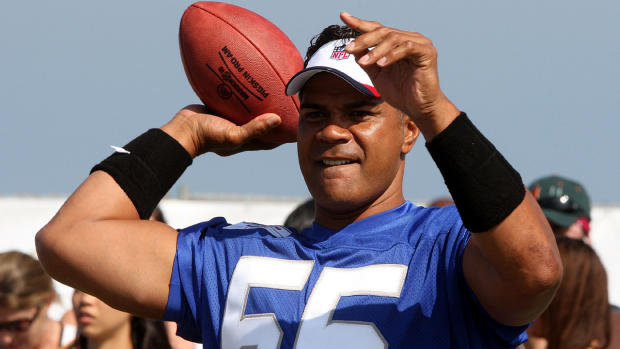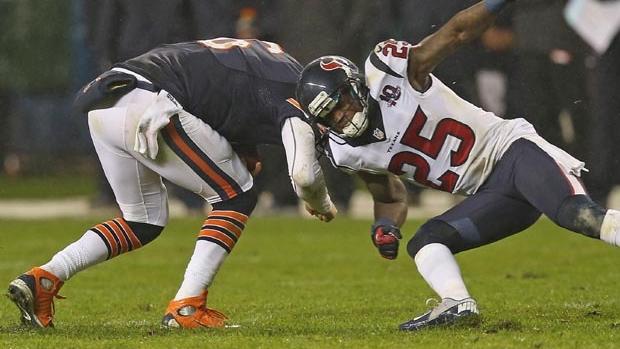New brain study to test 100 former NFL players
The researchers studying a degenerative brain disease in former athletes plan to test about 100 retired NFL players to try to learn how to diagnose the condition during life.
For now, the only way to confirm Chronic Traumatic Encephalopathy is by examining brains after death. The Boston University center that has analyzed the brains of more than 70 former athletes is starting a three-year study of living patients. The Center for the Study of Traumatic Encephalopathy at BU's School of Medicine also will recruit 50 retired elite athletes from non-contact sports as a comparison group, co-director Robert Stern told The Associated Press on Thursday.
The first subject completed the two days of extensive testing Wednesday and Thursday.
Until CTE can be diagnosed during life, it's impossible to develop treatments or to determine how to prevent it, Stern said.
"We need answers on this disease really quickly," he said.
Co-director Dr. Ann McKee has found CTE in more than 50 former athletes; in the past year alone, the list has included sports stars Dave Duerson of the NFL and Rick Martin of the NHL. Linked to repeated brain trauma, CTE is associated with symptoms such as memory loss, impaired judgment, depression, and, eventually, progressive dementia.
Dave Duerson had brain damage at time of suicide
The study, called DETECT, is the first on CTE funded by the National Institutes of Health. The goal is to find differences between the NFL players and the athletes who haven't experienced repeated blows to the head.
Subjects are flown into Boston for a wide variety of tests. On the first day, they spend a total of about two hours in scanners at Brigham and Women's Hospital for different kinds of neuroimaging. The second day takes place at BU's medical school and includes a spinal tap, a lengthy psychiatric interview, neurological and cognitive testing and blood work.
The NFL players must be offensive and defensive linemen, linebackers or defensive backs, because those positions involve the most repeated brain trauma. The subjects are between the ages of 40 and 69 and suffer from some symptoms associated with CTE. They all had long football careers to ensure an extensive history of blows to the head. Multiple concussions are not a requirement — partly because players may not even know they had a concussion, and partly because the evidence suggests CTE can occur simply through play after play of knocks to the head.
The NFL and the players' union are helping the center to contact former players. Stern said the initial response had been "extremely positive."
"There's a sense that former players want to be able to do something to not only potentially help themselves but also to help get the research moving quickly to help others in the future," he said.
The athletes in the comparison group will include retired swimmers and tennis players among others, recruited through college alumni associations and sports leagues.
"You'd be surprised at how many sports we exclude because we don't know for sure there's not a problem," Stern said, such as distance running, with the jolting of the head at every step.
Two more subjects are lined up for December, then the pace will pick up in January. The athletes are promised confidentiality.
The researchers hope genetic testing and other analyses help them eventually determine why some athletes who receive repeated blows to the head develop CTE and others don't. Dr. Robert Cantu and Chris Nowinski, a former Harvard football player and professional wrestler, are the other co-directors of the center.
Stern, a professor of neurology and neurosurgery at BU's medical school, also studies Alzheimer's. The recent progress made in diagnosing that disease during life encouraged him that the same could happen with CTE.
The grant, received in August, is also supported by the National Institute of Neurologic Diseases and Stroke, the National Institute on Aging, and the National Institute of Child Health and Human Development. There are 20 co-investigators, including researchers at Harvard, Penn and Columbia. The center is still seeking additional funding to complete the study.
The center is also conducting a study called LEGEND of more than 1,000 athletes from a variety of sports using yearly telephone interviews, online questionnaires and a saliva sample for genetic testing to try to learn more about the development of CTE.

